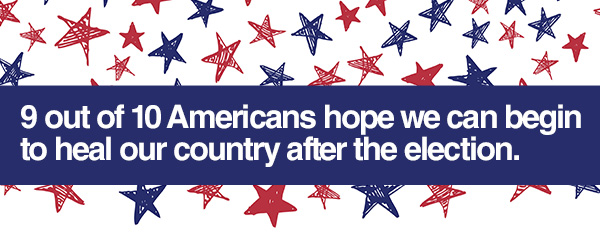
By Rabbi Will Berkovitz, Chief Executive Officer
Hello All,
My brother has been a poll worker for many years in Minnesota. He lives in the house where we grew up and the voting site is at a church not far away. He told me recently that between the pandemic and threat of unrest, he has safety concerns working at the polls—but then he added, “I made a commitment.” Until this year, I never asked him about why he essentially volunteers for the long day of public service.
When he’s not helping out at the polls, my brother works for the Postal Service. He is a salt-of-the-earth type of person, and for him helping on election day isn’t a moral gesture or a statement of activism. Instead, it’s more like jury duty. It is not an inconvenience to avoid; it is one of the very few ways we are asked to serve our communities. The key word is “serve.” In Hebrew, the word for service is “avodah,” which is also a word for “prayer” and as well as “work”. The act of service isn’t just a noun that we receive; it is also a verb—an action that we are called to do.

I read recently that 9 out of 10 Americans hope we can begin to heal our country after the election. That healing will take more than hope. It will only take place if we personally commit to doing the hard work. I am reminded of the ways communities and people come together after a disaster— showing up with work gloves, shovels and a commitment to help. I see this attitude among all those who volunteer at Jewish Family Service. From my experience, that commitment comes from a core belief that we are connected to something larger than our own self-interests. We are part of our neighborhoods, communities and cities. It is that collective spirit that animates the best of what is possible and what is needed now more than ever if we are truly going to repair our fractures.
A friend shared that his grandson waited in line for 5 hours to cast his ballot in Texas. That’s almost as long as a Yom Kippur service without the fasting. 5 hours. Voting should be the simplest act of faith in our democracy. It represents our collective statement of belief that our voices still matter in choosing our leaders. And that the leaders we choose represent our collective values, hopes and beliefs— not only to those who call the United States home, but to the world beyond.
Last week, our daughter was helping my wife and I write letters to encourage people to vote. On each of the fifty letters she decided to write: “I am 9 years old, so I don’t vote yet, but that is why it is important that you do.” We are trying to encourage her to feel empowered in our democracy and not a passive participant. I know other parents who are doing the same. It feels as though people are waking up to the fragility of our institutions and our democracy – maybe we have stared into the abyss for too long and are snapping out of our complacency.
Yes, we have much work to do and we have no idea what the weeks ahead will bring. We do know that things will likely not be clear on November 4. But I take strength in my brother’s commitment, my daughter’s faith in our fellow citizens and the determination of those who wait in line for hours to cast a ballot. Each in their own way, they are living at the intersection of service, work and prayer. And my prayer is that they will inspire us all to do the necessary work of healing what is broken in our country.
In Peace,

Rabbi Will Berkovitz
Chief Executive Officer



